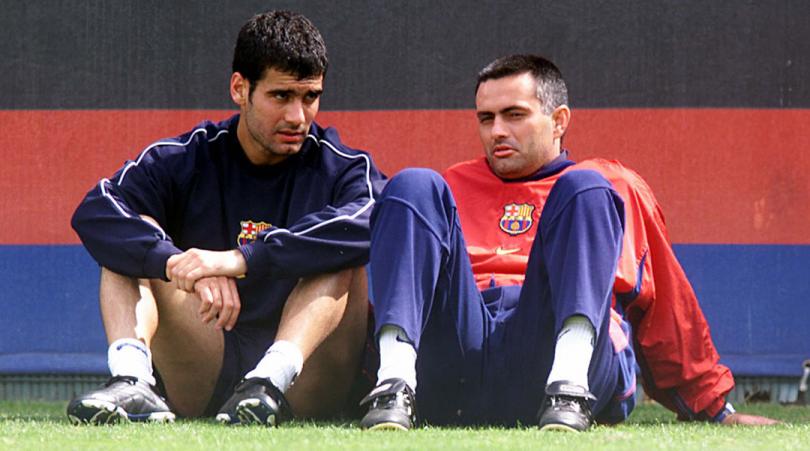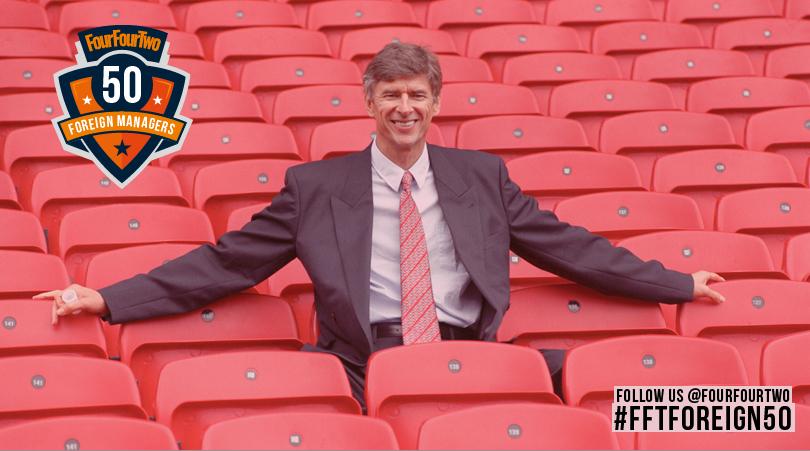Sven, Jose, Rafa and... Zajec?! The Prem's second wave of foreign managers remembered
With Arsene Wenger poised to celebrate 20 years as Arsenal manager on Thursday, FFT has decided to honour every foreign boss to grace (and often not) top-class football in England – all 50 of 'em. Here's the second batch of imports...
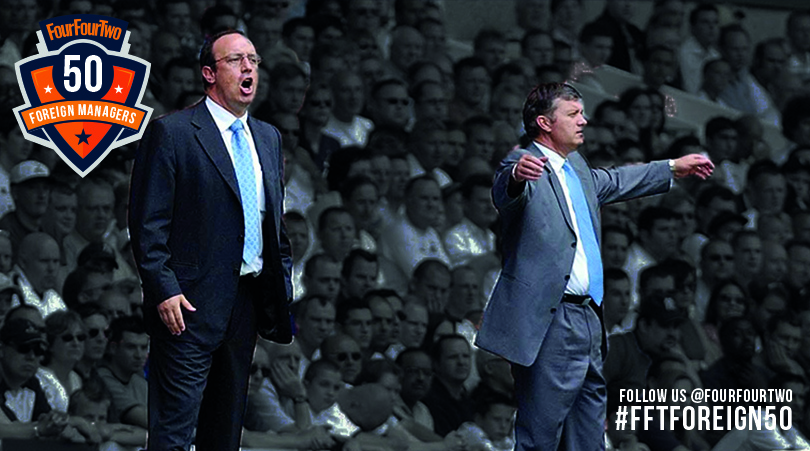
- PART ONE How many of English football's first 10 managerial imports do you remember?
- PART THREE Martinez, Mancini and continental Chelsea: The EPL's third wave of foreign managers
- PART FOUR Mel, Magath, Manuel and some Dutchmen: The Prem's fourth wave of foreign managers
11. Sven-Göran Eriksson (England, Manchester City)
- England: January 9, 2001 to July 2, 2006
- Manchester City: July 6, 2007 to June 2, 2008
He tidied up Kevin Keegan’s mess, gave England’s stunned fans a 5-1 win in Munich, then reached three successive tournament quarter-finals
It’s a great irony that while appointing a foreign manager was supposed to take England to a glorious millennial future, the chosen appointment merely enshrined an outdated tactical system as doggedly as anyone born on that Atlantic archipelago.
Despite the xenophobic wails that greeted the Swede’s appointment – the Daily Mail’s Jeff Powell ranted that England had sold “our birthright down the fjord to a nation of seven million skiers and hammer throwers who spend half their year living in total darkness” – Eriksson was a winner who had collected trophies in Sweden, Portugal and Italy. He tidied up Kevin Keegan’s mess, gave England’s stunned fans a 5-1 win in Munich, then reached three successive tournament quarter-finals.
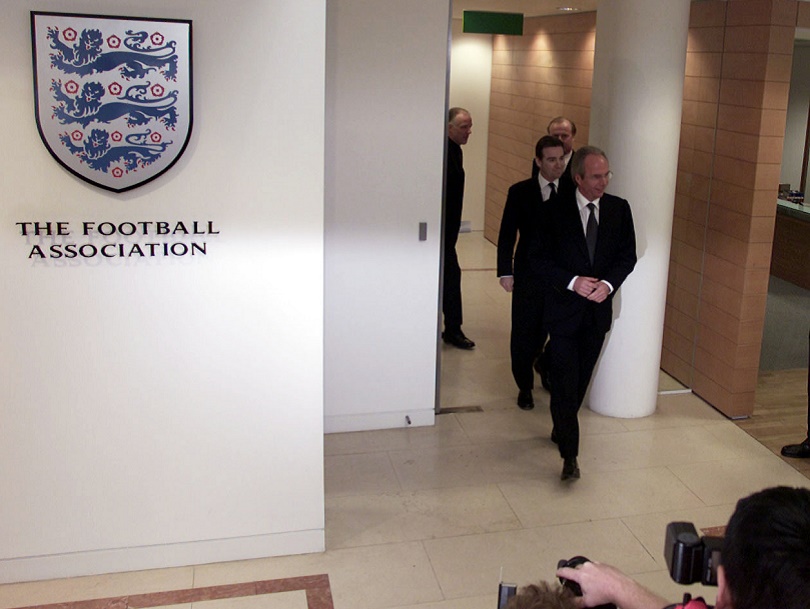
That which now seems luxury was then deemed unsatisfactory, and the suspicion remains that England’s best crop of players in half a century should have done better. Although two shootout defeats created a suitably self-pitying narrative, Eriksson was thrice outwitted by Luiz Felipe Scolari.
Tactically rigid, he was welded until late in his England reign to a strict 4-4-2 straight out of the '70s. He shunted Paul Scholes to the left wing and prompted his early retirement, and famously could never accommodate Steven Gerrard and Frank Lampard in the same team. A belated experiment with 4-5-1 only triggered a 1-0 defeat to Northern Ireland.
Few England fans bemoaned the end of his half-decade reign, but the national team subsequently got worse. Meanwhile, Eriksson has cashed cheques from Manchester City, Mexico, Notts County, Ivory Coast, Leicester, Thailand, Dubai and China. The future didn’t turn out to be bright.
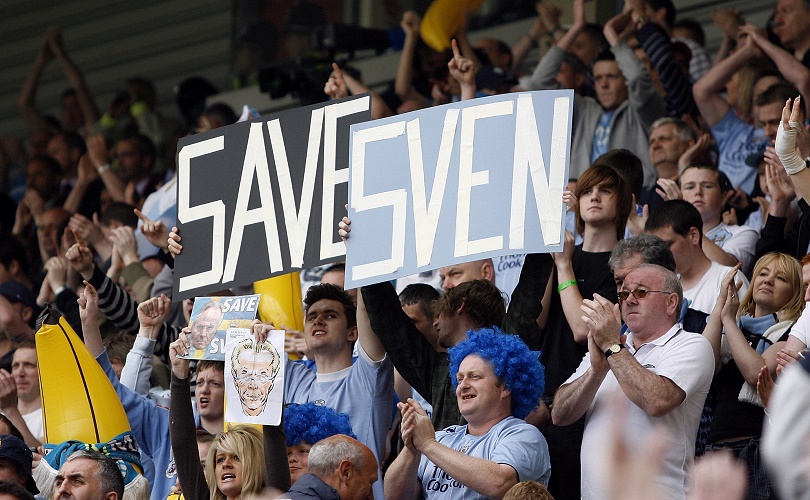
12. Jose Mourinho (Chelsea, Manchester United)
Get FourFourTwo Newsletter
The best features, fun and footballing quizzes, straight to your inbox every week.
- Chelsea: June 2, 2004 to September 20, 2007 & June 3, 2013 to December 17, 2015
- Manchester United: May 27, 2016 to date
Football journalists adored his carefully crafted soundbites; fashon mags pontificated over his stylish overcoat; Chelsea fans loved his side’s attacking brio
Curiously, between the summers of 2000 and 2004 there was only one overseas appointee at the top level of English football – Sven-Goran Eriksson to the national post. While some might have predicted a flood of substandard imports, top-flight clubs instead appointed glorious locals like Stuart Gray, Glenn Roeder and Dave Bassett.
But in the summer of 2004, a trio of major English clubs appointed a trio of major continental managers, and it was a surprise to nobody that Chelsea got their man in the seat first. Claudio Ranieri was popular but unable to slake new owner Roman Abramovich’s thirst for dominance.
Enter Jose Mourinho. In March he had proved his chutzpah with a celebratory sprint up the Old Trafford touchline after a (somewhat fortunate) late equaliser sent Porto through against Manchester United; by the end of May he had won the Champions League, to go with the two league titles, UEFA Cup and Portuguese Cup, and an invitation to take over at Stamford Bridge.
He immediately delighted and divided. Football journalists adored his carefully crafted soundbites; fashon mags pontificated over his stylish overcoat; Chelsea fans loved his side’s attacking brio (despite a later reputation for pragmatic football, his side scored 144 league goals in his first two seasons) and subsequent trophy-collecting.
It wasn’t all roses. He created a siege mentality in which certain other clubs and managers (notably Liverpool’s Rafa Benitez and Arsenal’s Arsene Wenger) were sworn enemies in a bitter, divisive media battleground. Even those fans not pitched in direct opposition tired of his shameless scene-stealing – often a ruse to protect his players, but one which led to accusations of self-centredness.
Even so, it was still something of a shock when he left Chelsea after three successful seasons, although that length of stay would become a pattern. After a term off he spent two years invigorating Inter (including another Champions League triumph), then three at Real Madrid before returning to Stamford Bridge; this time, he lasted just two-and-a-half seasons before a rancorous split.
There are those who say his confrontational style inevitably wears out its welcome – on stars, directors and fans. Equally, it's undeniable that Mourinho is as close as modern football gets to a guarantee of trophies: as at summer 2016 he has won eight top-flight titles in 14 seasons across four countries.
He's arguably the world’s finest coach at preparing for games and opponents, and he isn’t too idealistic to realise that occasionally means grinding out a result. His appointment by Manchester United – not least in conjunction with the arrival across the city of Pep Guardiola, the yang to his yin – should make for fascinating times in the Premier League.
13. Jacques Santini (Tottenham Hotspur)
- June 3, 2004 to November 5, 2004
In 2004, Tottenham chairman Daniel Levy ordered the full continental. Instead of parachuting a Euroboss into the traditional all-encompassing British managerial role, why not install a long-term sporting director over a (frankly dispensible) head coach? He’d already tried this to an extent with David Pleat over Glenn Hoddle, but yer Europeans were sure to accept it much more readily, right?
Arnesen wanted to appoint Martin Jol, but Levy demanded a bigger name and plumped for Jacques Santini, whom he expected to lead France to Euro 2004 glory
Wrong. Levy chose Frank Arnesen for the grown-up, transfers-and-strategy role then offered the balls-and-bibs job to Giovanni Trapattoni, who politely declined. Arnesen wanted to appoint Martin Jol, but Levy demanded a bigger name and plumped for Jacques Santini, whom he expected to lead France to Euro 2004 glory (rather than quarter-final defeat by Greece). As a sop to Arnesen, Jol was appointed assistant coach, so now Spurs had a Dane over a Frenchman assisted by a Dutchman. That’s your European dream, right there.
It started well enough, with six league games undefeated and only two goals conceded, but the tide turned with four losses in the next five. An increasingly withdrawn Santini appeared to resent Arnesen’s pre-eminence and closeness to Jol, while the players perhaps understandably didn’t know who was in charge. After a home loss to Bolton, a distraught Santini avoided the press to study the tapes – but on the day club legend Bill Nicholson died, that looked like a snub. Within a fortnight Santini was gone, replaced by Jol – and within a year Arnesen had been lured away by Chelsea.
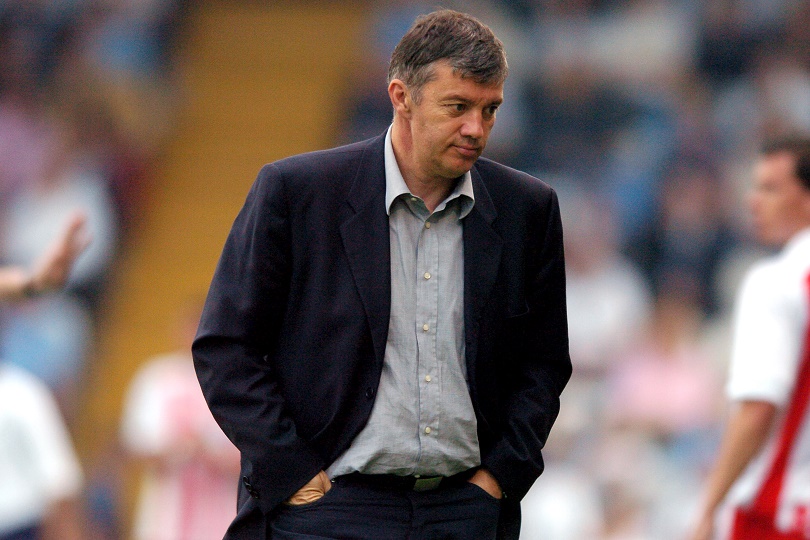
14. Rafael Benitez (Liverpool, Chelsea, Newcastle)
- Liverpool: June 16, 2004 to June 3, 2010
- Chelsea: November 21, 2012 to May 27, 2013
- Newcastle: March 11, 2016 to date
And obviously it helped enormously that in his first season he won Liverpool’s first European Cup in 21 years – much-needed bragging material as Ferguson’s Manchester United had been chipping away at the Reds’ once apparently unmatchable league title total
Liverpool is a singular city, initially wary of outsiders but quick to welcome those who adapt to its ways; of its 15 post-war managers, some of them iconic, only two (Joe Fagan and Roy Evans) were Liverpudlian by birth. But Scouseness is an adaptable, adoptable concept, and Rafa Benitez was quickly clasped to the city’s bosom.
It helped that the Spaniard understood the culture of the city and club. It helped that he was anti-authority, never shy to take on figures like Sir Alex Ferguson or the unpopular owners Gillett and Hicks. And obviously it helped enormously that in his first season he won Liverpool’s first European Cup in 21 years – much-needed bragging material as Ferguson’s Manchester United had been chipping away at the Reds’ once-apparently unmatchable league title total.
Along the way they beat Juventus and runaway league winners Chelsea, and Benitez became so popular that the fans took to carrying around a four-foot gold-framed painted portrait known as the Rafatollah. He never quite delivered the league title they craved – although in 2009 he got to within four points, as close as they had been since Margaret Thatcher was in power – and left in 2010 after a disappointing final season saw them crash out of the Champions League oligarchical collective.
His six months at Chelsea were a different experience altogether – vocally despised by many fans, and always a stop-gap appointment by the board – but he did win the Europa League, completing the Blues’ trophy set. He was parachuted in too late to save Newcastle from relegation, but the fans’ reaction to him – and his decision to stay for the second-tier campaign – recalls happier times in another northern port city.
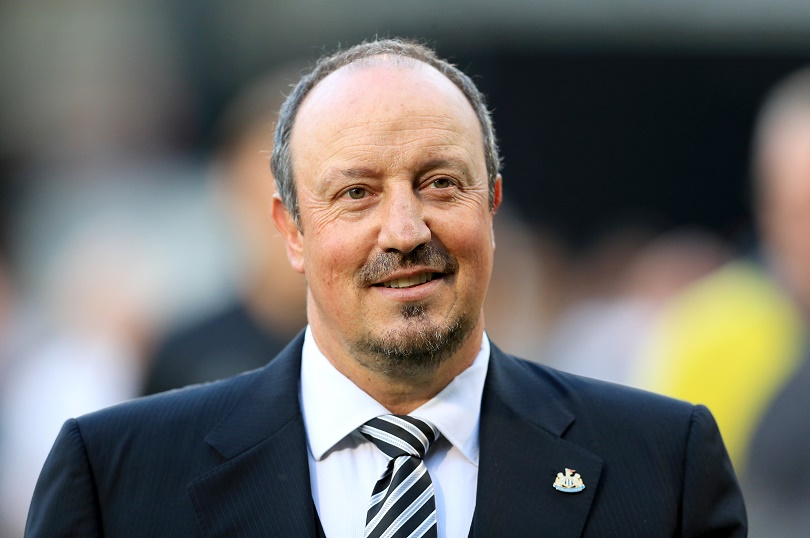
15. Martin Jol (Tottenham, Fulham)
- Tottenham: November 5, 2004 to October 25, 2007
- Fulham: June 7, 2011 to December 1, 2013
He started so well that he was tipped to return home for the Ajax job, but stuck around and in his first full season led Spurs agonisingly close to breaking into the top four
After attempting exotic with Santini, Spurs kept it closer to home for his successor: elevating the assistant Santini didn’t want, they gave the head coach badge to Martin Jol. A Dutch Anglophile, Jol had played in England back before it was trendy and lucrative, turning out for West Brom and Coventry in the mid-to-late 1980s when English football was arguably at its lowest ebb.
He started so well that he was tipped to return home for the Ajax job, but stuck around and in his first full season led Spurs agonisingly close to breaking into the top four; only a dodgy lasagne and subsequent loss at (a deliriously happy) West Ham stopped them displacing Arsenal from the Champions Chums Club.
The following season they finished fifth again, but a £40m summer spending spree was dictated by director of football Damien Comolli with Jol’s input ignored. Sevilla manager Juande Ramos was approached and, cruelly, Jol’s fate became public knowledge during a home game: he was informed by his nephew.
After a year at Hamburg and 18 months at Ajax, Jol returned to the Premier League with Fulham. His first season ended in a pleasing ninth place, his second in a disappointing 12th, and his third abruptly and prematurely after six consecutive losses. He would be the first of three Eurobosses that season at the Cottage, but that’s a different story…
16. Alain Perrin (Portsmouth)
- April 7, 2004 to November 24, 2005
Alain Perrin’s Portsmouth career was about more than a 4-1 defeat of Harry Redknapp’s Southampton, but not much more
A derby win will buy you a lot of favours. A derby win in April against relegation rivals managed by your ex-gaffer who left you in high dudgeon, effectively guaranteeing your safety while sending those rivals to the bottom of the league – well, that more or less makes you a legend, no matter how the story ends up.
Alain Perrin’s Portsmouth career was about more than a 4-1 defeat of Harry Redknapp’s Southampton, but not much more. Of 20 Premiership games, he won just four (Charlton, Everton and Sunderland his other victims), and left the club one place above the drop zone.
However, that Sunday-lunchtime blitz was enough for immortality. Redknapp returned to a boiling sea of hatred, and his Saints side were 4-1 down within half an hour. Perrin, who has since worked in Qatar and China, never really got to grips with England, and his was the last overseas appointment in the English top flight for more than two years – a dry spell it’s hard to imagine happening again; for comparison, in the two years to June 2016 English clubs appointed 16 different foreign managers.
17. Velimir Zajec (Portsmouth)
- November 24, 2004 to April 7, 2005
Yugoslavia’s captain at Spain 82 and Euro 84, Zajec was much more comfortable flitting between roles: at both the clubs he played for, Dinamo Zagreb and Panathinaikos, he had subequently had spells as head coach and DoF
Harry Redknapp doesn’t always like the Director of Football idea. He was made Portsmouth’s in summer 2001, and when the club’s form dipped a few months later manager Graham Rix was sacked and Redknapp given the gaffer’s office.
So he wasn’t too happy in November 2004 when Pompey owner Milan Mandaric appointed Velimir Zajec as “executive director”, apparently in charge of developing an academy. Yugoslavia’s captain at Spain 82 and Euro 84, Zajec was much more comfortable flitting between roles: at both the clubs he played for, Dinamo Zagreb and Panathinaikos, he had subequently had spells as head coach and DoF. Just over a week after his arrival at Pompey, Redknapp resigned.
If that sounds like Zajec had got what he wanted, it didn’t seem that way. Players like Eyal Berkovic and Shaka Hislop cited interpersonal problems; the man himself said “I’m trying to do two jobs and that is impossible, completely impossible”, and soon sought a new head coach.
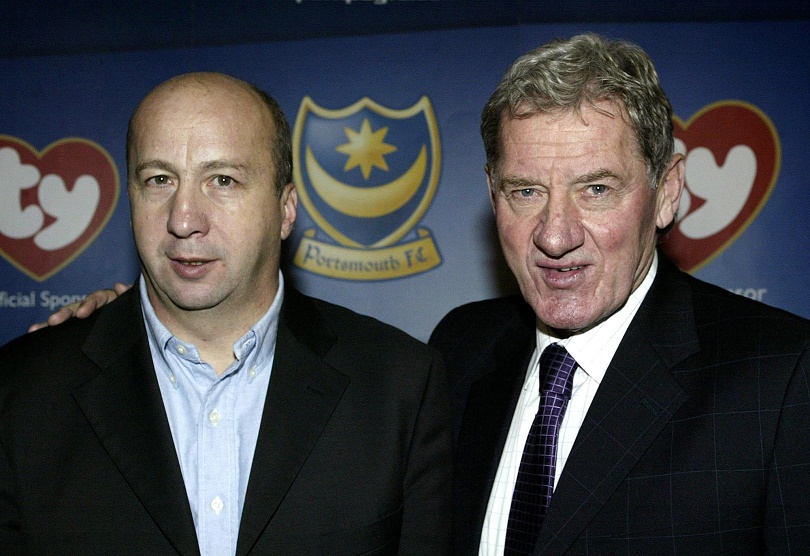
That was Alain Perrin, hired in April 2005. Zajec slipped back upstairs, but Mandaric’s purse-strings were tightening too far for Zajec’s grand plans, and by October he resigned.
18. Avram Grant (Chelsea, Portsmouth, West Ham)
- Chelsea: September 29, 2007 to May 24, 2008
- Portsmouth: November 26, 2009 to May 21, 2010
- West Ham: June 3, 2010 to May 15, 2011
In summer 2006 he joined Portsmouth as technical director; a year later his friend Roman Abramovich made him Chelsea’s Director of Football, and 10 weeks later he replaced Jose Mourinho despite lacking the requisite coaching badges
To date, only three overseas managers have thrice been hired by English top-flight clubs: Jose Mourinho, Rafa Benitez and Avram Grant. It’s an odd trio with little else in common, besides having been through the revolving doors of the Stamford Bridge manager’s office.
Born Avraham Granat in Israel of Polish heritage, he started coaching at age 18 and managed his country by age 47. In summer 2006 he joined Portsmouth as technical director; a year later his friend Roman Abramovich made him Chelsea’s Director of Football, and 10 weeks later he replaced Jose Mourinho despite lacking the requisite coaching badges. Unlike his predecessor, he led the Blues to the Champions League final, but lost on penalties to Manchester United and was sacked.
In October 2009 he resurfaced as Portsmouth’s DoF; seven weeks later he had replaced Paul Hart as manager. Pompey went into administration and Grant resigned, after losing the FA Cup final against Chelsea, to join West Ham. They were abjectly relegated in 20th position and he was sacked.
19. Juande Ramos (Tottenham)
- 27 October, 2007 to 25 October, 2008
I asked for Samuel Eto’o and David Villa, but we were left with Darren Bent and Roman Pavlyuchenko
Tottenham fans might want to be Real Madrid but Daniel Levy would settle for Sevilla: a club who trade wisely, make a profit and consistently finish high up the league and win in Europe. So it was no real shock that Spurs hired Juande Ramos, who had led his side to two successive Europa League triumphs.
The Spaniard struck silver for Spurs, too, with the League Cup triumph over Chelsea securing UEFA Cup qualification – a necessary security, because they finished 11th after a wildly inconsistent league season in which they scored 66 but conceded 61.
Perhaps Levy should have targeted Sevilla’s legendary sporting director Monchi, but instead Ramos had to work with Damien Comolli, whose botched attempt to replace the club’s star striker eventually cost the Spaniard his job. “I didn’t have a problem with selling Dimitar Berbatov, so long as someone came in to replace him,” said Ramos later.
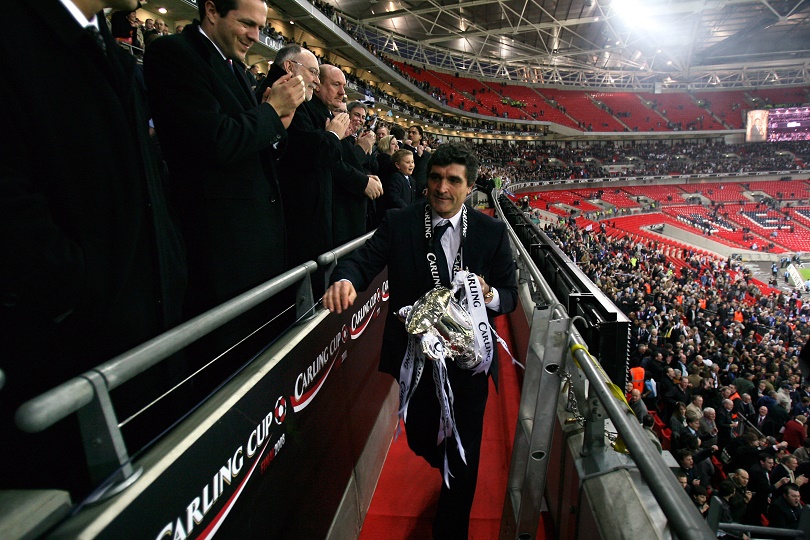
“I asked for Samuel Eto’o and David Villa, but we were left with Darren Bent and Roman Pavlyuchenko. The only honourable thing Levy did was that he knew Comolli had made the signings – so he sacked him, too.” The Director of Football position was abolished at the request of Ramos’s replacement, Harry Redknapp.
20. Fabio Capello (England)
- 14 December, 2007 to 8 February, 2012
Fabio Capello had won a lot of things, like seven league titles in 16 seasons across Spain and Italy, and a lot of respect as a disciplinarian – catnip to England fans who thought McClaren had run a holiday camp
England have a habit of dealing with disappointment by hiring the person who epitomises the opposite of his predecessor’s weakness. The icily detached Glenn Hoddle was replaced by the manic Kevin Keegan, whose collapse begat the quietly thoughtful Sven-Göran Eriksson. But Svennis was foreign and England demanded an Englishman, so they elevated Steve McClaren, who failed to reach Euro 2008. After that, they needed a winner.
Fabio Capello had won a lot of things, like seven league titles in 16 seasons across Spain and Italy, and a lot of respect as a disciplinarian – catnip to England fans who thought McClaren had run a holiday camp. And indeed, Capello’s team sailed through qualifying for the 2010 World Cup, winning their first eight fixtures and averaging over three goals per game.
However, the campaign in South Africa was disastrous. An ageing, stolid England stumbled through an underwhelming group and were outclassed 4-1 by a vital young Germany team. Players complained of a “prison camp” atmosphere, as Rio Ferdinand explained: "Capello's attitude was, 'I'm the boss and you'll do what I say all day, every day'. There was never much warmth. He seemed to need to show us how strong and disciplinarian he could be and was so aggressive sometimes it was just ridiculous."
Trouble was, England and Capello had committed to each other until Euro 2012, with a £6m annual contract. Again, Capello’s team easily topped a poor group: they were unbeaten in eight games, scoring 17 and conceding five – but the inevitable qualification only lengthened the period of uncomfortable waiting.
And then, suddenly, he was gone – but not because of performances or results, rather over a point of principle in a grubby affair. With England captain John Terry facing a pending court case over alleged racial abuse, unhelpfully timed for July, the FA decided to relieve him of the captaincy. Interviewed in Italy, Capello publicly disagreed and was invited back for a quick chat by the FA, at which he resigned.
Capello’s 51 months in office yielded the highest win percentage of any England manager, but this must be contextualised against some poor qualification groups: in finals football, his team looked poorly prepared and barely motivated. The great Don Fabio won his leagues, qualifying at a canter, but a closer look at his previous record revealed something else: his only major ‘cup’ triumph as a club manager was the 1993/94 Champions League, whose only knockout stages were the final and a one-legged semi.
THE LIST 1-10 • 11-20 • 21-30 • 31-40 • 41-50
More features every day on FourFourTwo.com • 50 Foreign Managers hub
Gary Parkinson is a freelance writer, editor, trainer, muso, singer, actor and coach. He spent 14 years at FourFourTwo as the Global Digital Editor and continues to regularly contribute to the magazine and website, including major features on Euro 96, Subbuteo, Robert Maxwell and the inside story of Liverpool's 1990 title win. He is also a Bolton Wanderers fan.

